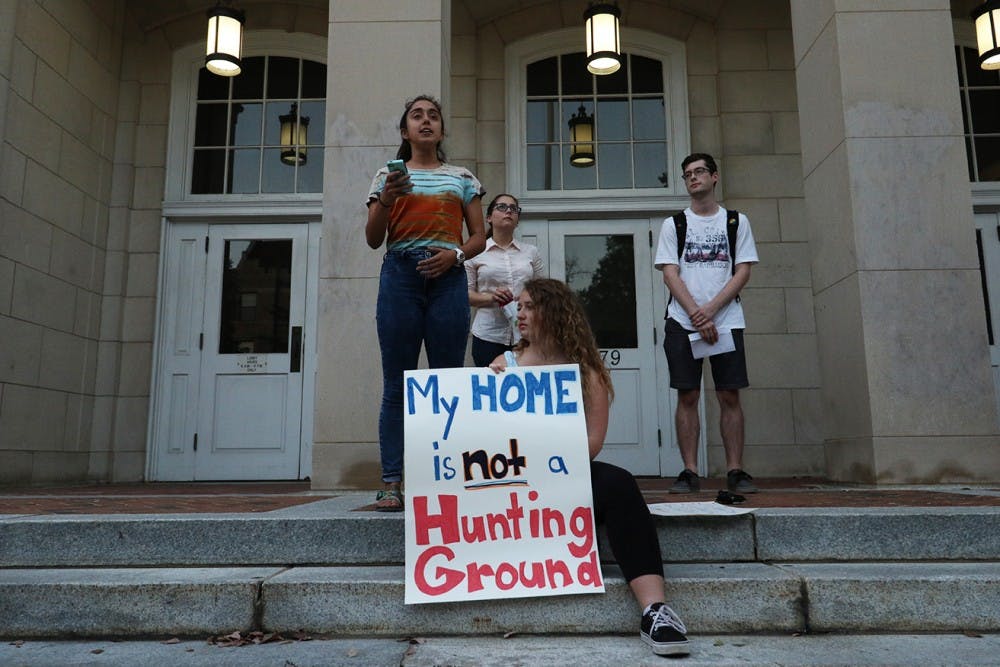“However, it’s important to note that we don’t want to fear-monger when discussing this issue,” Singh said. “We don’t want to scare people — we want to empower them to fight this.”
The Red Zone Initiative tackles three main themes: teaching students about affirmative consent, helping them avoid harmful actions and increasing active bystander intervention and support.
To raise awareness across the student body, the initiative is pairing with a variety of organizations on campus, including Arts Everywhere, The Black Student Movement and the Campus Climate Coalition.
The initiative will be organizing several events on campus throughout the year, including a “Red Zone Day” in October, Curry said.
In past years, Singh said the initiative's efforts have been duplicated and divided across campus and were too focused on events rather than long-term activation. Emphasizing the three themes and focusing more on changing the campus climate long-term has revitalized the initiative, she said.
“This year, the Red Zone Initiative is taking a collaborative approach to its work,” Lucy Russell, co-director of Campus Climate Coalition, said. “It will be action-oriented to mobilize students to be aware of the gender-based violence epidemic on campus and to equip them with the tools to create a stronger University together.”
To frame the issue in a more positive way and remove blame from survivors, the initiative is emphasizing more supportive and inclusive language, Singh said — for example, “this is how not to perpetrate," rather than “this is how you need to protect yourself."
“We never say ‘victims,’ we say ‘survivors,’” Singh said. “We never blame anything on an outfit or on the fact that someone went out one night because everyone should be allowed to have fun.”
Singh said changing the language is important for the narrative surrounding sexual assault and gender-based violence to become more empowering and impactful.
“There is not one demographic that solely experiences gender-based violence — it is a reality that affects people along sexuality, gender, racial and ethnic identities,” Russell said. “We should not put people into categories as ‘victims’ or ‘perpetrators,’ but instead realize that this gender-based violence is a pervasive issue that affects people in many ways.”
Support can also be found through various organizations on campus and online at the University's main portal for safety resources, safe.unc.edu, Curry said.
“We want to let first-year women and all students know that people are taking notice of this issue and we are working to provide solutions,” Curry said.
To get the day's news and headlines in your inbox each morning, sign up for our email newsletters.
Baresich said she hopes this initiative will make students more aware of the resources available to them.
“It is a dark reality that sexual assault will still happen no matter what,” Baresich said. “But resources in the community and on campus will really go a long way in helping to support survivors and educate students, and just knowing about them is extremely important.”
The term “Red Zone” is problematic in itself, Singh said, because we're always in a red zone.
“In the spring, we are not in the clear,” Singh said. “The Red Zone is just a defined period to raise awareness so we can go into the spring feeling better.”
This year, Singh said everyone will be included in the conversation.
But Russell said there is still a lot of work to be done.
“We should be creating a campus where healthy relationships and sex are the norm — not the exception,” Russell said. “Everyone deserves fulfilling and positive relationships at Carolina.”
@annasouthwell1
university@dailytarheel.com




